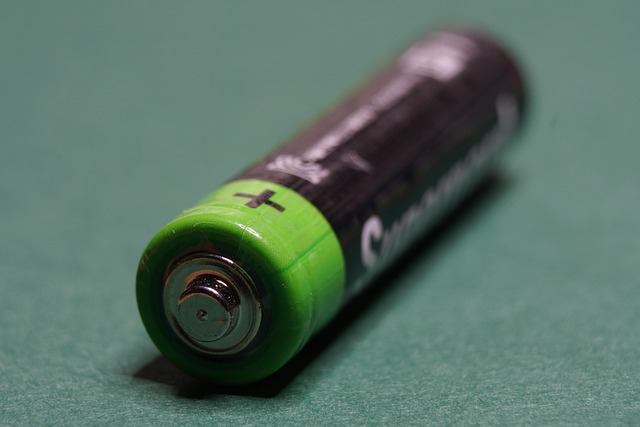New York City and Boston lead the way in sustainable battery recycling with distinct approaches. NYC integrates battery collection into its waste system for widespread accessibility, while Boston focuses on robust business programs with convenient drop-offs. Both cities promote green practices through accessible options, educational events, and upcycling initiatives, setting benchmarks for urban areas to reduce electronic waste and embrace a circular economy.
New York City and Boston, two bustling metropolitan areas, are leading the way in sustainable practices with their innovative battery collection programs. This article explores the efforts of these cities to manage and recycle batteries responsibly, focusing on Boston’s unique approach against NYC’s established system. We delve into the collection methods, compare their recycling rates, and discuss the environmental impact of these initiatives. Discover how these cities are promoting battery health and setting standards for eco-friendly disposal across the nation.
- Battery Recycling Programs in NYC: An Overview
- Boston's Approach to Sustainable Battery Collection
- Comparing Recycling Efforts: Boston vs. NYC
- Promoting Battery Health: Collection and Disposal Methods
Battery Recycling Programs in NYC: An Overview

New York City (NYC) has made significant strides in sustainable waste management, and one notable aspect is its battery recycling programs. These initiatives are designed to reduce the environmental impact of batteries while promoting a circular economy. The city offers several options for residents and businesses to responsibly dispose of and recycle various types of batteries, including lead-acid batteries, which are commonly found in vehicles and energy storage systems.
NYC’s community battery recycling centers play a vital role in this process. These facilities accept a range of batteries, ensuring proper disposal and recycling, especially for non-toxic alternatives like lithium-ion batteries. The program encourages citizens to drop off used batteries at designated collection points, making it easy to recycle lead acid batteries nearby and contributing to the overall goal of reducing electronic waste in ma state battery recycling laws.
Boston's Approach to Sustainable Battery Collection

Boston has emerged as a leader in sustainable battery collection and recycling practices. The city’s approach involves an extensive network of drop-off locations, including dedicated e-waste centers and local hardware stores, making it convenient for residents to responsibly dispose of their used batteries. Regular community events, like Boston’s Battery Recycling Days, further encourage participation by offering on-site collection points and education on proper battery disposal methods.
This initiative extends beyond mere recycling; it involves upcycling and repurposing collected batteries into innovative art installations and eco-friendly products. By integrating these creative elements, Boston not only promotes a circular economy but also raises awareness about the environmental impact of discarded batteries. The city’s commitment to nyc sustainable battery recycling serves as an inspiration for other urban centers, demonstrating that even small changes in waste management can have a significant positive impact on the environment.
Comparing Recycling Efforts: Boston vs. NYC

In comparing battery recycling efforts between Boston and NYC, it’s evident that both cities are committed to sustainable practices, but with distinct approaches. Boston has established robust programs for businesses to recycle car batteries, encouraging corporate responsibility with convenient drop-off locations and potential cash incentives through recycling batteries for cash MA initiatives. This targeted strategy has led to significant increases in rechargeable battery recycling rates across the state.
On the other hand, NYC takes a broader approach, integrating battery collection into its comprehensive waste management system. The city’s programs focus on residential and public drop-off points, ensuring that residents can easily participate in battery recycling. While NYC may not offer cash rewards like some Boston programs, its widespread accessibility makes it convenient for individuals to do their part in reducing electronic waste. This balance between corporate and community engagement showcases two successful models of battery recycling that other urban centers can learn from.
Promoting Battery Health: Collection and Disposal Methods

Promoting Battery Health through proper collection and disposal methods is a key aspect of sustainable living in cities like Boston and New York (NY). In Boston, businesses can participate in efficient battery recycling programs that ensure responsible management of these small yet powerful energy sources. This initiative extends to residents as well, who can drop off their used rechargeable batteries at various collection points across the city or even recycle them at local pharmacies.
In NY, non-hazardous battery disposal methods are readily available, offering a convenient way for individuals and businesses to contribute to environmental preservation. Recycling old batteries not only reduces landfill waste but also recovers valuable materials that can be reused in manufacturing new products, further minimizing our ecological footprint. By embracing these practices, Boston and NY are leading the way in sustainable battery management, encouraging responsible disposal and promoting a greener future.
As we’ve explored, both Boston and New York City have made significant strides in battery collection and recycling, with each city employing unique strategies. While NYC’s programs focus on convenient drop-off locations and a robust network of collection points, Boston takes a more targeted approach, emphasizing proper disposal methods and education. Ultimately, these efforts demonstrate the potential for cities worldwide to reduce e-waste and promote sustainable battery management, ensuring a greener future for all. By adopting best practices from both models, further advancements in battery recycling can be realized, particularly with increased public awareness and collaboration between municipalities and tech companies.














